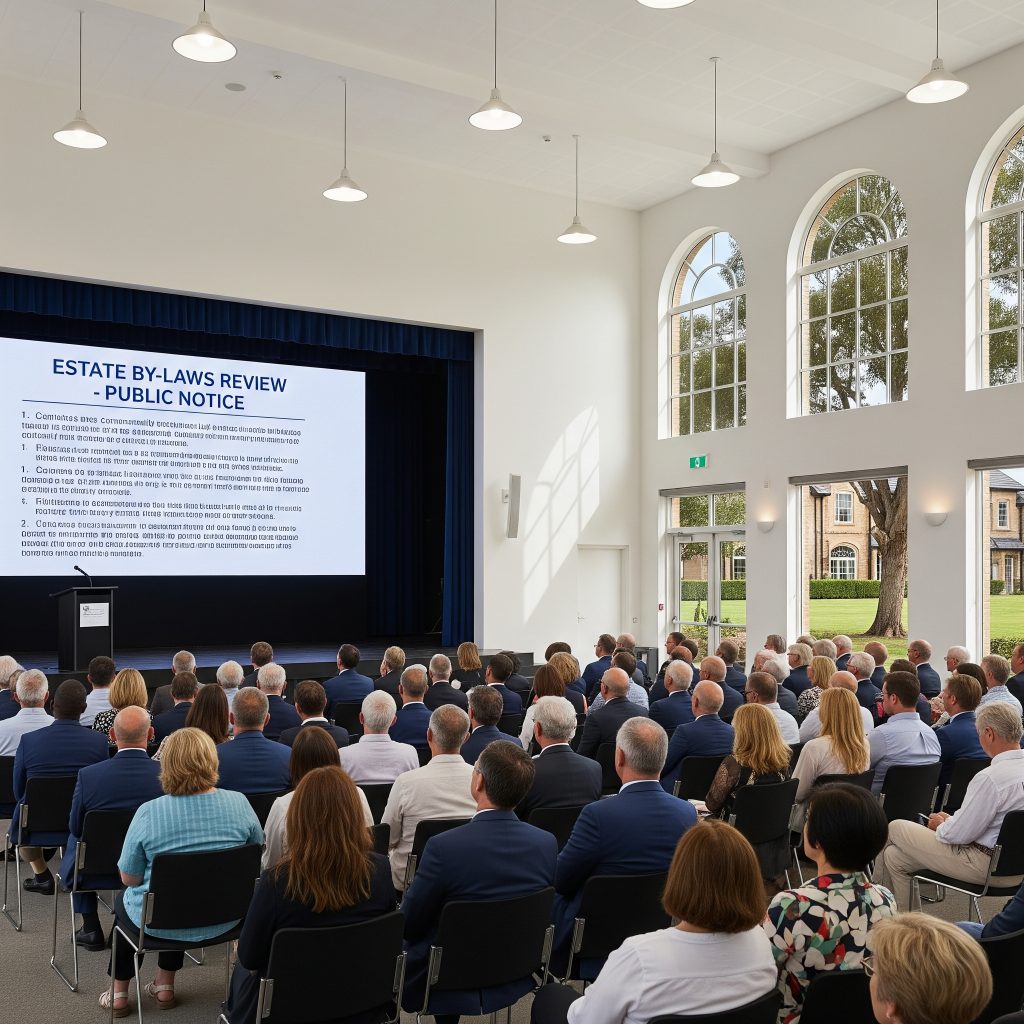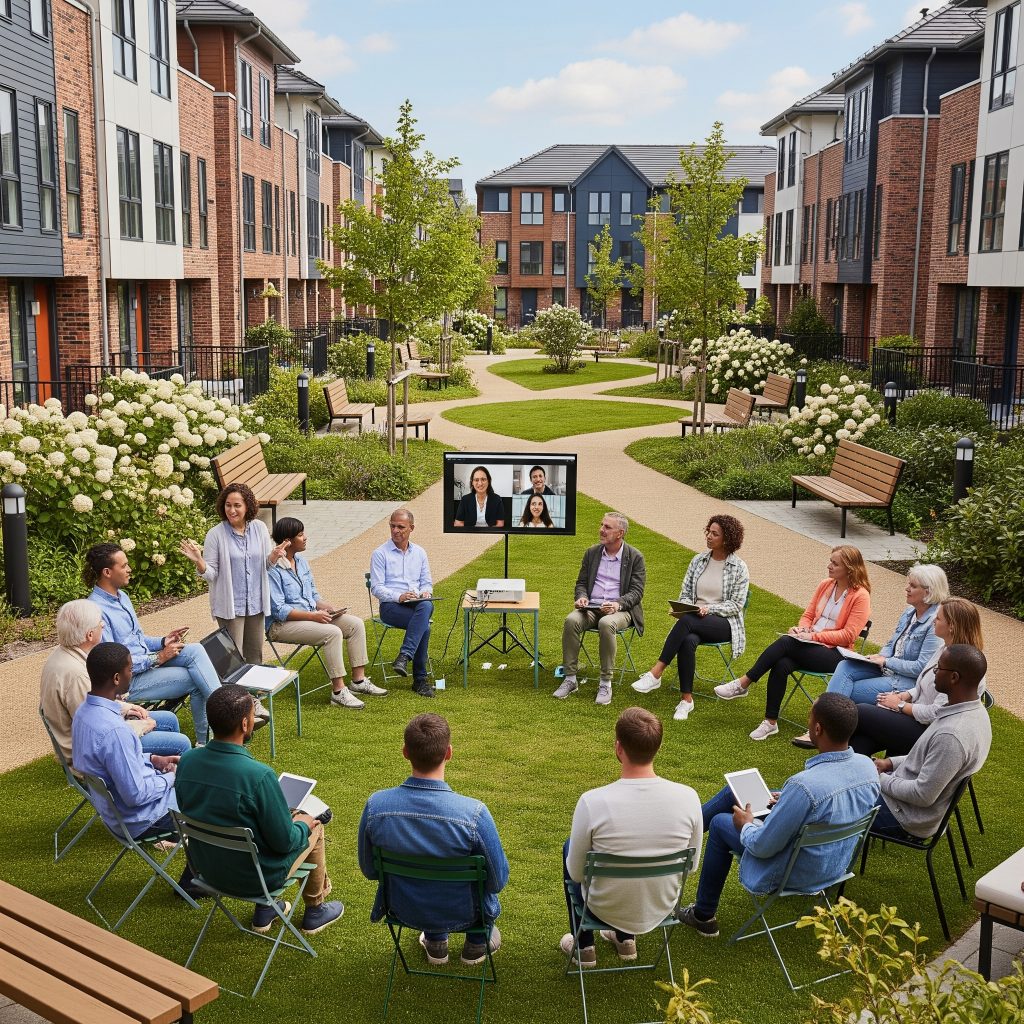If you’re a property owner in a gated estate or townhouse complex in New South Wales, recent updates to community land laws might affect how your scheme runs. Effective from 1 July 2025, changes to the Community Land Development Act 2021 and Community Land Management Act 2021 aim to make things fairer, greener, and easier to manage. These reforms align community schemes—like those in gated communities and townhouse developments—more closely with strata rules.
In this article, we’ll break it down simply. We’ll cover the main changes, why they matter for you, and what to do next. Based on updates from NSW Fair Trading and insights from legal experts like Bell Lawyers and Jamesons Strata Management.

Why These Changes Are Trending Now
As of 1 July 2025, NSW has rolled out the first stage of reforms to community land laws. This is big news for owners in community schemes, which include gated estates and townhouses. Unlike standard strata, these schemes often involve shared land and facilities. The updates focus on better governance, sustainable living, and fairer deals. They’re designed to protect owners, encourage eco-friendly upgrades, and streamline disputes. With housing costs rising and more people choosing community living, these changes help keep schemes modern and resident-friendly.
Key Changes Effective from 1 July 2025
The reforms bring community schemes in line with strata laws. Here’s what you need to know, broken into clear sections.
Updates to By-laws
By-laws are the rules that govern daily life in your scheme. The new laws make them fairer and tougher to enforce.
- By-laws can no longer be harsh, unconscionable, or oppressive—meaning they must be reasonable for all owners.
- Penalties for breaking by-laws have increased, so expect stricter consequences for rule-breakers.
- You now have six months (up from two) to notify the Registrar General of any by-law changes, giving schemes more time to get organised.
These tweaks help prevent unfair rules in gated estates, where by-laws often cover security gates or shared pools.

Improvements in Dispute Resolution
Disputes over noise, maintenance, or shared spaces are common in townhouses and gated communities. The changes make resolving them simpler and more flexible.
- Meetings can now happen without everyone in the room—use video calls, teleconferencing, or electronic voting for easier participation.
- Options like postal voting and secret ballots add fairness, especially for busy owners.
- Later in 2025, NSW Fair Trading will get more powers to step in if schemes ignore legal duties, speeding up resolutions.
This means fewer trips to tribunals and quicker fixes for common issues like neighbour disagreements.
Better Governance and Committee Duties
Scheme committees handle decisions on repairs, budgets, and rules. The reforms clarify their roles to ensure transparency.
- Committee members must act in good faith, putting the scheme’s interests first.
- Clearer rules on conflicts of interest stop personal gains from influencing votes.
- Limits on how many proxies one person can hold prevent power imbalances at meetings.
For townhouse owners, this leads to fairer decision-making on shared areas like gardens or driveways.

Sustainability Infrastructure Adoption
Going green is easier now, which is great for eco-conscious communities.
- Schemes can approve sustainability upgrades—like solar panels, EV charging stations, or water-saving systems—with fewer hurdles.
- These changes support lower energy bills and a smaller carbon footprint in gated estates.
Fairer Contract Terms
If you’re buying into a scheme, contracts must be clearer.
- Developers need to provide transparent budgets, realistic levies, and full disclosure of their rights.
- This protects new owners from surprises, especially in growing townhouse developments.
How This Affects Gated Estates and Townhouse Owners
In gated estates, where security and shared amenities are key, these changes mean smoother operations and stronger protections against unfair by-laws. Townhouse owners will benefit from easier dispute handling and greener options, making community living more enjoyable. Overall, the reforms promote fairness, reducing conflicts and encouraging sustainable choices. If your scheme hasn’t updated yet, now’s the time to check—non-compliance could lead to fines.
For more details, visit the NSW Fair Trading community land changes page. Or explore our property management services for tailored advice.
Key Takeaways
- By-laws are fairer: No more oppressive rules, with higher penalties for breaches.
- Disputes resolved faster: Flexible meetings and upcoming Fair Trading powers.
- Governance improved: Committees must act ethically, with proxy limits.
- Sustainability boosted: Easier approvals for green infrastructure.
- Contracts protected: Transparent terms for buyers in community schemes.
These updates make NSW community living better for everyone.

Next Steps for Owners
Review your scheme’s by-laws and talk to your committee about updates. If you need help navigating these changes, contact a professional. Follow us on X @ElymentGroup for more tips, or visit elyment.com.au.
